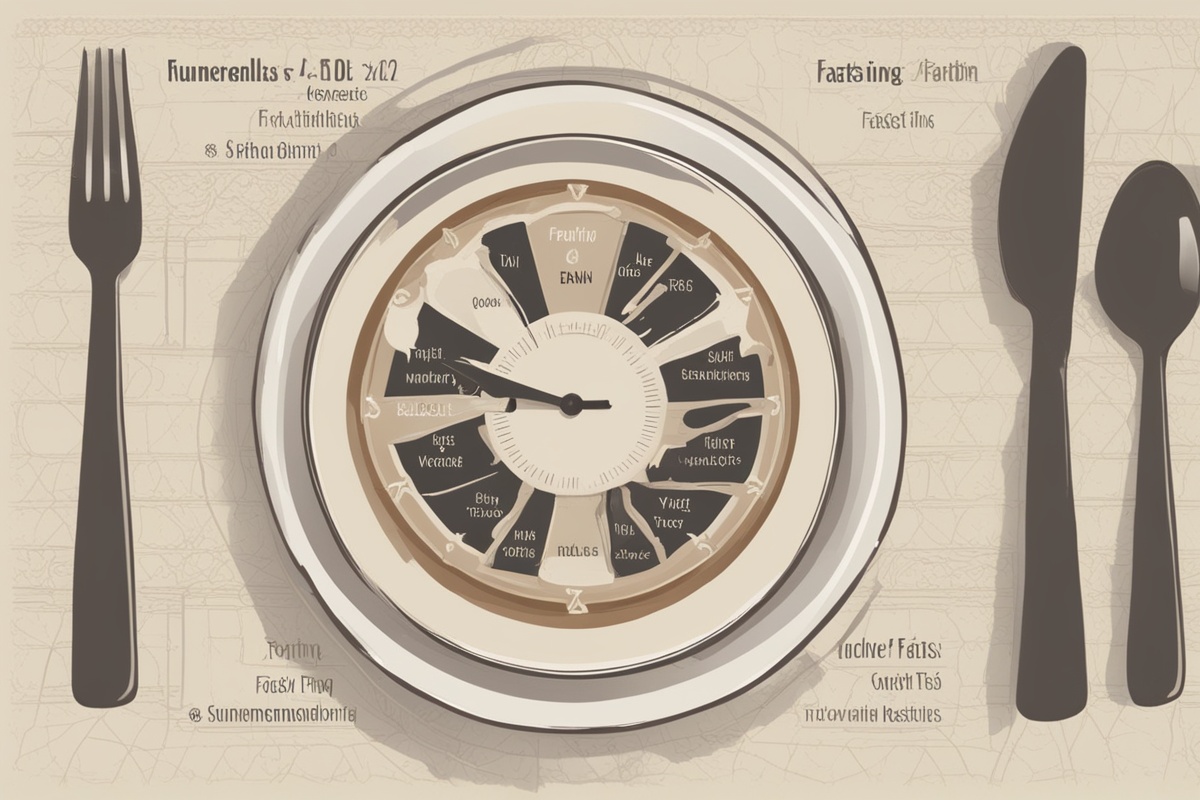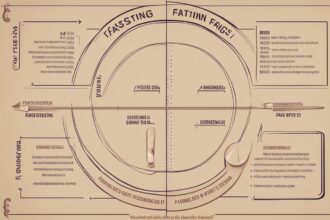Navigating the world of health and weight loss can be overwhelming with countless strategies promising quick results. Two popular approaches, fasting and dieting, often spark debate among beginners looking to improve their lifestyle. Among these, intermittent fasting has gained significant attention for its simplicity and potential benefits. If you’re new to this concept, this guide on intermittent fasting for beginners will help you understand how it compares to traditional dieting, its benefits, challenges, and how to get started safely.
What Is Intermittent Fasting and How Does It Differ from Dieting?
Intermittent fasting (IF) is not a diet in the traditional sense but rather an eating pattern that cycles between periods of eating and fasting. Unlike dieting, which often focuses on what you eat—such as cutting calories or restricting certain food groups—intermittent fasting emphasizes when you eat. Popular methods include the 16/8 method (fasting for 16 hours and eating during an 8-hour window) and the 5:2 method (eating normally for five days and restricting calories on two non-consecutive days).
On the other hand, dieting typically involves a structured plan to reduce calorie intake or prioritize specific nutrients. Examples include the ketogenic diet, paleo, or low-carb plans. While diets can be effective, they often require constant monitoring of food choices, which can feel restrictive for beginners. Intermittent fasting for beginners offers a more flexible approach, as it doesn’t dictate specific foods but rather focuses on timing.
If you’re curious about other weight loss strategies, check out our detailed comparison of Keto vs. Paleo diets to see how they stack up against fasting.
Benefits of Intermittent Fasting for Beginners
One of the reasons intermittent fasting has become so popular is its potential health benefits, especially for those just starting out. Research suggests that IF can aid in weight loss by reducing overall calorie intake and improving metabolic health. A 2014 study published in the Translational Research journal found that intermittent fasting can lead to significant weight loss and improved insulin sensitivity (Varady et al., 2014).
Beyond weight loss, IF may also support cellular repair processes like autophagy, where the body removes damaged cells, and improve brain health by increasing levels of brain-derived neurotrophic factor (BDNF), as noted in a 2019 review in the New England Journal of Medicine (de Cabo & Mattson, 2019). For beginners, these benefits can be motivating, especially since IF doesn’t require drastic changes to food choices initially.
Additionally, intermittent fasting can simplify meal planning. With fewer eating windows, you may spend less time preparing food and more time focusing on other aspects of your life. To explore more about the science behind fasting, read our post on The Science of Fasting Benefits.
Challenges of Intermittent Fasting for Beginners
While intermittent fasting offers numerous benefits, it’s not without challenges, especially for those new to the practice. One common hurdle is hunger, particularly during the initial fasting periods. Your body may take time to adjust to longer periods without food, leading to irritability or fatigue. Beginners are advised to start with shorter fasting windows, such as 12 hours, before progressing to more intensive methods like 16/8.
Another challenge is social eating. Fasting schedules can clash with family meals, social gatherings, or work events, making it difficult to stick to the plan. Unlike traditional diets where you can often adapt meals to fit social settings, IF requires stricter adherence to timing. It’s important to plan ahead and communicate your goals with friends and family to navigate these situations.
Lastly, overeating during eating windows can negate the benefits of fasting. Beginners may feel tempted to “make up” for missed meals by consuming excess calories, which can hinder weight loss goals. For tips on managing hunger, check out our guide on Hunger Management During Fasting.
How to Start Intermittent Fasting as a Beginner
Getting started with intermittent fasting for beginners doesn’t have to be complicated. Here are some practical steps to ease into the practice:
- Choose a Method: Start with a beginner-friendly approach like the 12/12 method (12 hours fasting, 12 hours eating) before moving to 16/8. This gradual transition helps your body adapt.
- Stay Hydrated: Drink plenty of water during fasting periods to curb hunger and maintain energy levels. Herbal teas and black coffee (without sugar) are also acceptable.
- Plan Balanced Meals: Focus on nutrient-dense foods during eating windows to ensure you’re meeting your nutritional needs. Include proteins, healthy fats, and complex carbohydrates.
- Listen to Your Body: If you feel unwell or excessively fatigued, adjust your fasting schedule or consult a healthcare professional.
Consistency is key, but flexibility is equally important for beginners. Don’t stress if you miss a fasting window—simply resume your schedule the next day. For a deeper dive into meal planning, explore our article on Balanced Meal Ideas for Fasting.
Intermittent Fasting vs. Traditional Dieting: Which Is Better for Beginners?
Deciding between intermittent fasting and traditional dieting depends on your lifestyle, preferences, and goals. Dieting often provides structured guidelines, which can be helpful if you prefer clear rules about what to eat. However, it may feel restrictive and unsustainable for some, leading to yo-yo dieting patterns. A 2017 study in the International Journal of Obesity highlighted that many dieters regain weight due to the difficulty of long-term adherence (Lowe et al., 2017).
In contrast, intermittent fasting for beginners offers simplicity and flexibility since it focuses on timing rather than food choices. However, it requires discipline to stick to fasting windows and may not suit everyone, especially those with certain medical conditions or irregular schedules. Ultimately, the best approach is one you can maintain consistently. If you’re unsure, combining elements of both—such as fasting a few days a week while following a balanced diet—might be a good middle ground.
For more insights on sustainable weight loss, read our post on Long-Term Weight Loss Strategies.
Common Myths About Intermittent Fasting for Beginners
As intermittent fasting gains popularity, several myths and misconceptions have emerged, often deterring beginners from trying it. Let’s debunk a few:
- Myth 1: Fasting Means Starving Yourself – Intermittent fasting isn’t about deprivation. It’s about timing your meals strategically while still meeting your nutritional needs during eating windows.
- Myth 2: Fasting Slows Metabolism – Contrary to popular belief, short-term fasting can actually boost metabolic rate by increasing norepinephrine levels, as supported by research in the American Journal of Clinical Nutrition (Zauner et al., 2000).
- Myth 3: Fasting Isn’t Safe for Beginners – When done correctly and under guidance, IF is generally safe for most healthy individuals. However, consulting a healthcare provider is recommended if you have underlying conditions.
Understanding the facts can help you approach intermittent fasting with confidence and realistic expectations.
Disclaimer: The information provided in this article is for educational purposes only and should not be considered medical advice. Intermittent fasting may not be suitable for everyone, including pregnant or breastfeeding individuals, those with certain medical conditions, or those under 18. Always consult a healthcare professional or registered dietitian before starting any fasting or dieting regimen to ensure it aligns with your health needs and goals.






